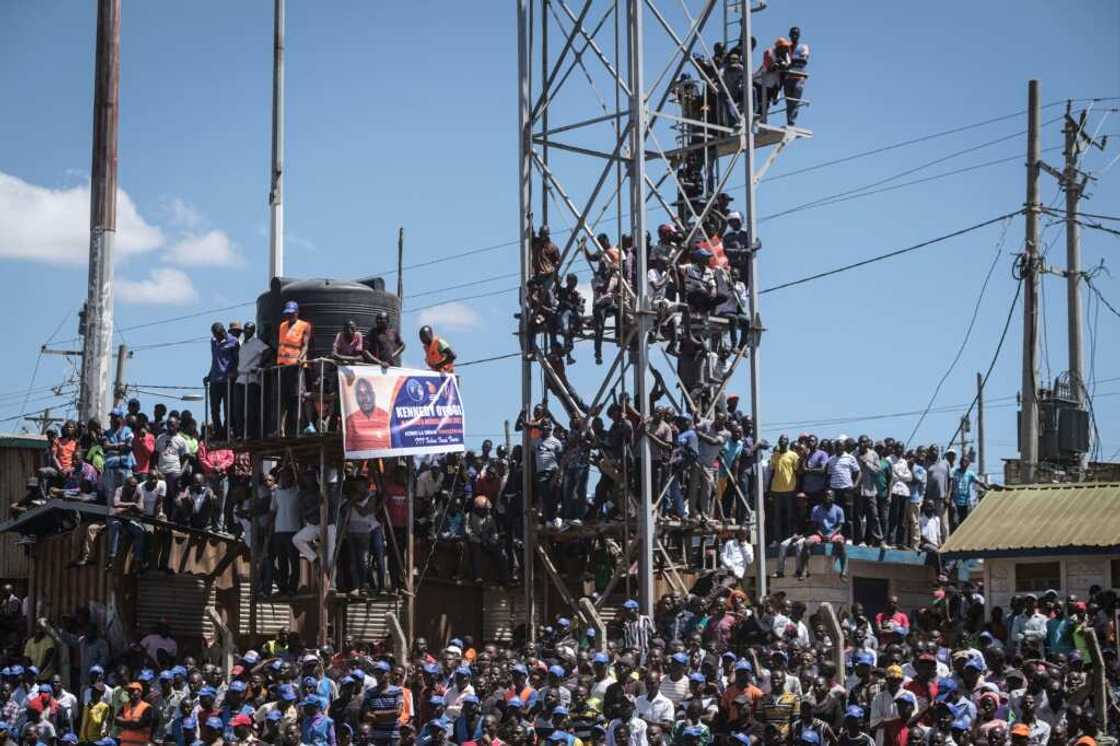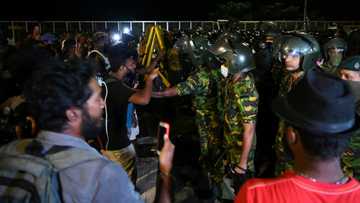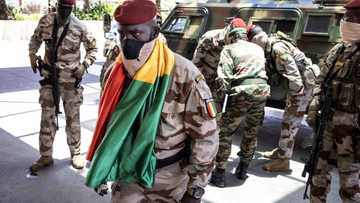Kenyan poll body slams arrest of vote contractors

Source: AFP
Kenya's electoral authority has condemned the "brazen" arrest in Nairobi of three officials from a company supplying electronic voting systems for next month's presidential.
Police on Friday confirmed one foreigner had been detained carrying undeclared election stickers.
The Independent Electoral and Boundaries Commission (IEBC) said the arrest of key personnel from Smartmatic International at Nairobi's international airport amounted to "intimidation, harassment and blackmail".
The employees, who were detained on arrival Thursday from Venezuela, were legally contracted to deploy and manage election technology infrastructure for Kenya's election on August 9, the IEBC said in a statement late Thursday.
"The brazen decision of the security authorities to arrest, detain and confine in a solitary hideout the three personnel without justification, is an exhibition of intimidation," it said.
Police said the foreigners had been arrested at the capital's Jomo Kenyatta International Airport with election-related stickers in their luggage.
PAY ATTENTION: Join Legit.ng Telegram channel! Never miss important updates!
"The arrest, impounding and subsequent investigations into the material was necessitated by the sensitivity of elections material," said national police spokesman Bruno Shioso.
Police were not informed such material was being imported, he said, adding the stickers were also not declared or accompanied by an IEBC official as required by law.
The suspect had been released from custody following investigations, Shioso said.
The IEBC said the detentions would have "the inevitable effect of hampering the deployment of technology in the forthcoming General Election".
"Technology plays a central role in elections and the Commission wonders what the intention behind the holding of the technical personnel is meant to achieve," it said.
Smartmatic, a London-based company, says it has successfully deployed secure election technologies in more than 30 countries.
Electronic voting and tallying has proved deeply contentious in past Kenyan polls.
Kenya's highest court ordered a re-run of the 2017 presidential election after citing widespread irregularities in the electronic transmission of results and mismanagement by the IEBC.
The European Union, in assessing that poll, noted that an electronic system for transmitting and tallying results was supposed to improve transparency but instead fuelled opposition suspicions of fraud.
It recommended improving electronic voting systems for the 2022 election saying "technology cannot replace trust".
Deputy President William Ruto and former Prime Minister Raila Odinga are the leading presidential contenders and have fought a long and expensive campaign across East Africa's biggest economy.
Sitting president Uhuru Kenyatta cannot run again and has endorsed Odinga over his deputy of nine years after an acrimonious falling out.
Source: AFP




